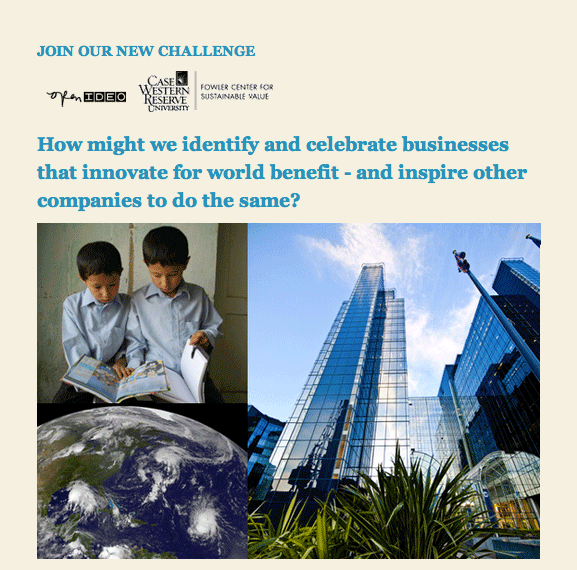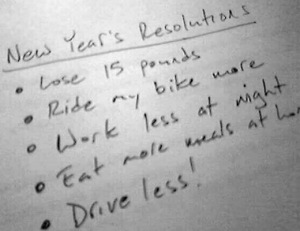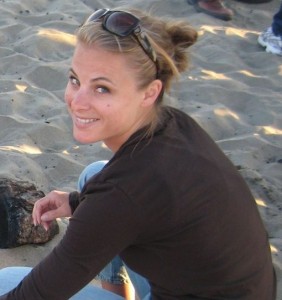It’s been a busy year of learning, stretching, growing and testing for me at IDEO. Knowing that I’m someone who likes to take stock of my progress and plan for the year ahead (see my posts here and here for examples), I thought I’d take some time to review my efforts and share some big lessons I’ve had along the way.
For those of you out in the working world, my hope is that these might resonate with you. And for the MBAs, design students and other job seekers out there, consider these some helpful tips for what’s to come!
So, here’s what I’ve learned so far:
The Road to Impact is Long…and Bumpy…and Unpaved
If you’re like me, when you start a new job you want to hit the ground running. Eager to make an impact and prove my value to my team, I dove in head first to every big and bold strategic question I could get my hands on – basically with the intention to solve every question, pursue every lead, and wring every ounce of opportunity I could from each day.
Not surprisingly, after a few months of this craziness I realized the dangers of this approach. First and foremost, I burnt out almost immediately. Secondly, this ‘raising my hand to tackle everything’ strategy actually meant that I wasn’t really able to complete anything I started…a brutal a-ha moment when I went back over my to-do lists and saw how many things I started but never crossed off.
At OpenIDEO we talk about achieving impact from our challenges, and yes – the road to OpenIDEO impact is definitely long (but we’re working on it). But from where I sit, my own road to impact at work – not just learning my job but actually doing it well – has been bumpy, unpaved and very windy. After 12 months on the job, though, I not only know how to do my job, but I know how much of my job I can do. At least at one time.
Opportunities Disguised as Obstacles
Although it might sound cliché, this lesson for me is all about attitude. Buried in post-its, empty cups of coffee and a growing list of things to do, it’s been easy for me to throw my hands up in the air at times and wallow: “This is too difficult/chaotic/busy/challenging/insert negative thought here.”
But the truth is: it’s all about attitude. Take, for instance, the work that I do with my teammates who literally live half a world away. Rather than bemoan our regular Skype calls and long email chains, I’ve chosen to respect and appreciate the fact that our team brings a global voice and perspective to the work we do. Working across three time zones has also forced me to practice communicating in new ways, favoring short and to-the-point over long and wordy (definitely easier said than done – I’m still working on this one!).
Stopping to Smell the Roses…at least once a day
Let’s face it: working in a startup can be a bit nutty, to say the least. Over the course of the last year, I’ve had my fair share of skipped lunches, early morning starts and weekend work-a-thons. But somewhere along the way, the Golden Rule of Business School (you may know it as the 80/20 rule) flashed into my mind.
What I realized is that there is always going to be work. There’s always going to be an opportunity to do better, to try something out, to report back on the last experiment, or just really to do more. But as the law of diminishing returns teaches us, at a certain point this extra effort just stops paying off. Productivity drops, mood drops, everything drops.
I started taking walks at lunch. I started having coffee with new coworkers to welcome them in much the same way I was welcomed when I joined. I started attending lunches and know-hows and speaker sessions. In essence, I started showing up for activities and opportunities that existed beyond my desk.
I learned this lesson late in my first year at IDEO, so I’m truthfully only starting to reap the rewards. But trust me: I’m learning more, I’m making friends, and I’m doing even better at my job. A win win win!
Creating, Promoting and Leveraging Communities of Change
This last lesson has been an especially sweet one for me. When I started this blog almost three years ago, I was attracted to the idea of communities of change – who they are, what they do, and what we can learn from them. So you can imagine my nice surprise when, just a couple of weeks ago, I realized: this is what I do for work.
My job is all about creating, promoting and leveraging one very specific community of change: the OpenIDEO community. My role is to help our global community find their voice, learn about issues that affect them, and translate their enthusiasm and energies into ideas for local and global impact. Amazing how early interests and intentions can end up aligning with real life.
All in all, this last year has been an incredible time for me, one that’s pushed me to reevaluate how I work, collaborate, learn and lead. Are you taking time to review your own lessons at work, or in life? What have you learned?
It’s been a busy year of learning, stretching, growing and testing for me at OpenIDEO. Knowing that I’m someone who likes to take stock of my progress and plan for the year ahead (see my posts here and here for examples), I thought I’d take some time to review my efforts and share some big lessons I’ve had along the way.

For those of you out in the working world, my hope is that these might resonate with you. And for the MBAs, design students and other job seekers out there, consider these some helpful tips for what’s to come!
So, here’s what I’ve learned so far:
The Road to Impact is Long…and Bumpy…and Unpaved
If you’re like me, when you start a new job you want to hit the ground running. Eager to make an impact and prove my value to my team, I dove in head first to every big and bold strategic question I could get my hands on – basically with the intention to solve every question, pursue every lead, and wring every ounce of opportunity I could from each day.
Not surprisingly, after a few months of this craziness I realized the dangers of this approach. First and foremost, I burnt out almost immediately. Secondly, this ‘raising my hand to tackle everything’ strategy actually meant that I wasn’t really able to complete anything I started…a brutal a-ha moment when I went back over my to-do lists and saw how many things I started but never crossed off.
At OpenIDEO we talk about achieving impact from our challenges, and yes – the road to OpenIDEO impact is definitely long (but we’re working on it). But from where I sit, my own road to impact at work – not just learning my job but actually doing it well – has been bumpy, unpaved and not at all direct. After 12 months, though, I not only know how to do my job, but I know how much of my job I can do. At least at one time.
Opportunities Disguised as Obstacles
Although it might sound cliché, this lesson for me is all about attitude. Buried in post-its, empty cups of coffee and a growing list of things to do, it’s been easy for me to throw my hands up in the air at times and wallow: “This is just too difficult/chaotic/busy/scary.”
But the truth is: it’s all about attitude. Take, for instance, the work that I do with my teammates who literally live half a world away. Rather than bemoan our regular Skype calls and long email chains, I’ve chosen to respect and appreciate the fact that our team brings a global voice and perspective to the work we do. Working across three time zones has also forced me to practice communicating in new ways, favoring short and to-the-point over long and wordy (definitely still working on this one!).
Stopping to Smell the Roses…at least once a day
Let’s face it: working in a startup can be nuts. Over the course of the last year, I’ve had my fair share of skipped lunches, early morning starts and weekend work-a-thons. But somewhere along the way, the Golden Rule of Business School (you may know it as the 80/20 rule) flashed into my mind.
What I realized is that there is always going to be work. There’s always going to be an opportunity to do better, to try something out, to report back on the last experiment, or just really to do more. But as we all know, at a certain point this extra effort just stops paying off. Productivity drops, mood drops, everything drops.
I started taking walks at lunch, having coffee with new coworkers, and attending know-hows and speaker sessions. In essence, I started showing up for activities and opportunities that existed beyond my desk. And so far I’m learning more, I’m making friends, and I’m doing even better at my job. A win win win!
Creating, Promoting and Leveraging Communities of Change
This last lesson has been an especially sweet one for me. When I started this blog almost three years ago, I was attracted to the idea of communities of change – who they are, what they do, and what we can learn from them. So you can imagine my nice surprise when, just a couple of weeks ago, I realized: this is what I do for work.
My job is all about creating, promoting and leveraging one very specific community of change: the OpenIDEO community. My role is to help our global community find their voice, learn about issues that affect them, and translate their enthusiasm and energies into ideas for local and global impact. Amazing how early interests and intentions can end up aligning in real life.
All in all, this last year has been an incredible time for me, one that’s pushed me to reevaluate how I work, collaborate, learn and lead. Are you taking time to review your own lessons at work, or in life? What have you learned?






 One topic that comes up often in CSR discussions is social intrapreneurship (in fact, it’s something
One topic that comes up often in CSR discussions is social intrapreneurship (in fact, it’s something